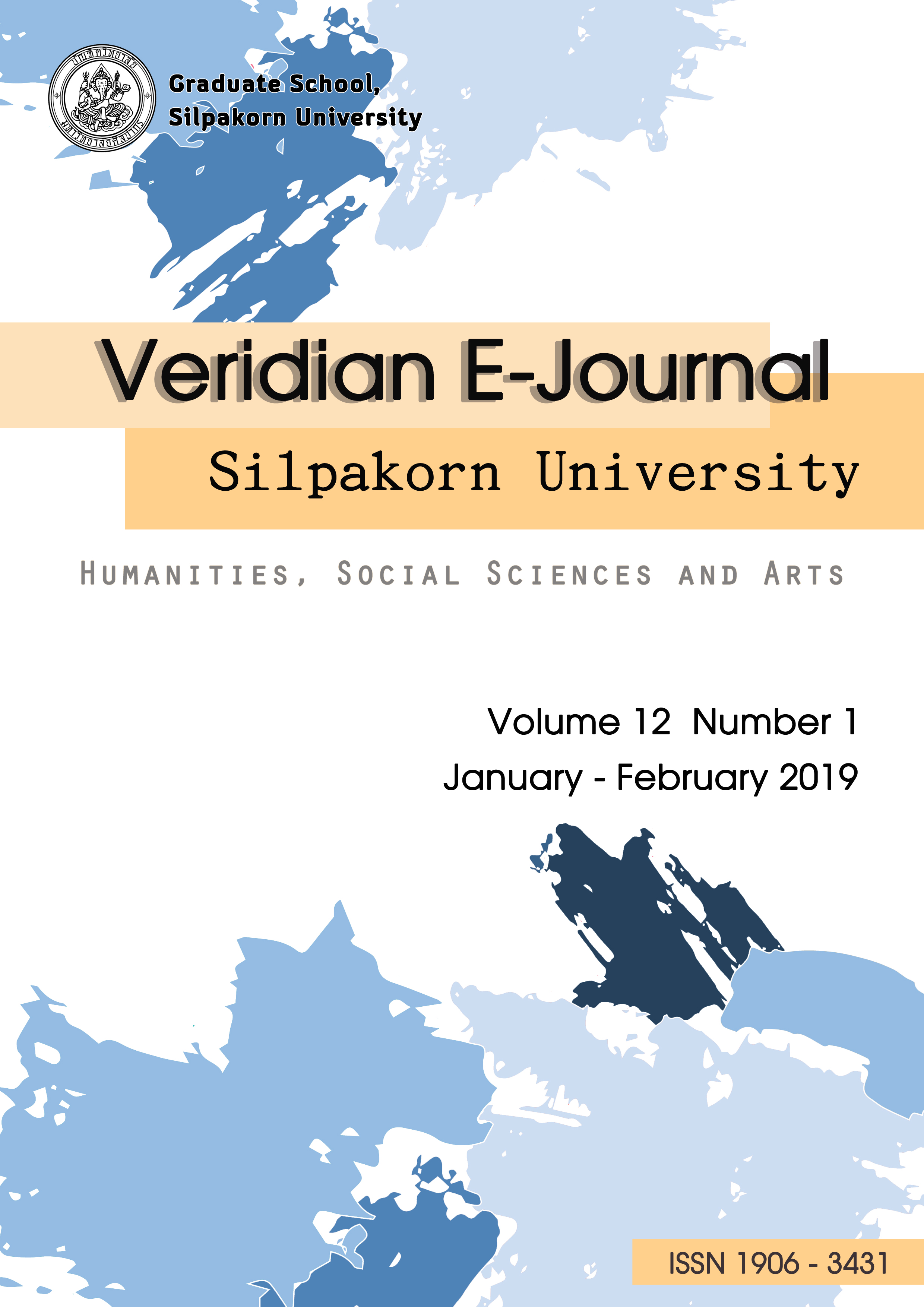การพัฒนาความเข้าใจและการประยุกต์ใช้แนวคิดอุตุนิยมวิทยาของนักศึกษาครู วิทยาศาสตร์ด้วยการจัดการเรียนรู้เชิงสถานการณ์บูรณาการ การให้เหตุผลทางวิทยาศาสตร์ (Development of Pre-service Science Teachers’ Conceptual Understanding and Applications of Meteorology through Situation-Based Learning with Integration of Scientific Reasoning)
Main Article Content
Abstract
งานวิจัยครั้งนี้มุ่งสร้างความเข้าใจและการประยุกต์ใช้แนวคิดวิทยาศาสตร์ของนักศึกษาครูวิทยาศาสตร์ในเนื้อหาอุตุนิยมวิทยา โดยกำหนดจุดประสงค์การวิจัยดังนี้ 1) เพื่อออกแบบกิจกรรมการเรียนรู้เชิงสถานการณ์บูรณาการการให้เหตุผลทางวิทยาศาสตร์ในบริบทเกี่ยวกับอุตุนิยมวิทยา และ 2) เปรียบเทียบความเข้าใจและการประยุกต์ใช้แนวคิดอุตุนิยมวิทยาของนักศึกษาครูวิทยาศาสตร์ก่อนและหลังการจัดการเรียนรู้ที่เน้นการใช้สถานการณ์บูรณาการการให้เหตุผลทางวิทยาศาสตร์ ระเบียบวิธีวิจัยเน้นการวิจัยเชิงผสมผสาน ผู้มีส่วนร่วมในการวิจัยครั้งนี้เป็นนักศึกษาครูชั้นปีที่ 3 สาขาวิทยาศาสตร์ทั่วไป มหาวิทยาลัยราชภัฎ จำนวน 43 คน และรวบรวมข้อมูลการวิจัยด้วยการใช้แบบวัดความเข้าใจและแบบวัดการประยุกต์ใช้แนวคิดอุตุนิยมวิทยาก่อนและหลังการจัดการเรียนรู้เป็นระยะเวลา 2 สัปดาห์ รวมถึงการรวบรวมและการวิเคราะห์ผลงานและเอกสารการเรียน ผลการวิจัยพบว่า ผลคะแนนเฉลี่ยจากแบบวัดความเข้าใจในเนื้อหารายวิชาอุตุนิยมวิทยาหลังเรียนสูงกว่าก่อนเรียนที่ระดับนัยสำคัญ .01 และคะแนนเฉลี่ยจากแบบวัดการประยุกต์ใช้แนวคิดอุตุนิยมวิทยาหลังเรียนสูงกว่าก่อนเรียนที่ระดับนัยสำคัญ .01 สถานการณ์ภัยธรรมชาติและสภาพอากาศทั่วไปที่ใช้ในการจัดการเรียนรู้เป็นตัวขับ เคลื่อนให้เกิดกระบวนการจัดการเรียนรู้จากสถานการณ์ในชีวิตประจำวัน และการผนวกกระบวนการให้เหตุผลทางวิทยาศาสตร์เปิดโอกาสให้นักศึกษาครูวิทยาศาสตร์วิเคราะห์สถานการณ์ ลงข้อสรุป พร้อมเชื่อมโยงแนวคิดวิทยาศาสตร์ที่สนับสนุนข้อสรุปได้ครบถ้วนตามองค์ประกอบ ดังนั้นการจัดการเรียนรู้เชิงสถานการณ์บูรณาการการให้เหตุผลทางวิทยาศาสตร์ถือเป็นทางเลือกหนึ่งสำหรับการจัดการเรียนการสอน เพื่อส่งเสริมความเข้าใจและการประยุกต์ใช้แนวคิดอุตุนิยมวิทยาของนักศึกษาครูวิทยาศาสตร์
This research aimed to development of science student teachers’ conceptual understanding and application of meteorology. The research objectives were to design situation-based learning with integration of scientific reasoning activity for learning meteorology and to compare between pre- and post-conceptual understanding and application of meteorology test average scores. A mixed-methods approach was used with 43 third year students participated in this study, who were in a Science Teacher Education Program in Rajabhat University. They were administered meteorology concept test and meteorology concept-application test 2 weeks before and after instruction. In addition, situations concerning the natural disaster and weather news used in meteorology learning are a driving of learning from everyday life. Integration with scientific reasoning which provides science student teachers opportunities to analyze given situations, make conclusions and link scientific conceptions support the conclusion completely as its components. Students’ learning documents were collected and analyzed. Results indicated that post-meteorology concept test average score was higher than pre- at significant level .01 and post-meteorology concept-application test average score was higher than pre- at significant level .01. Therefore, situation-based learning with integration of scientific reasoning activity for learning meteorology is an alternative learning approach for development of science student teachers’ conceptual understanding and application of meteorology.

